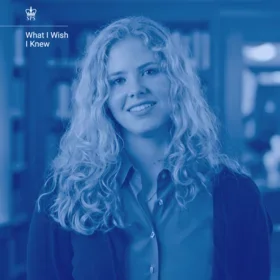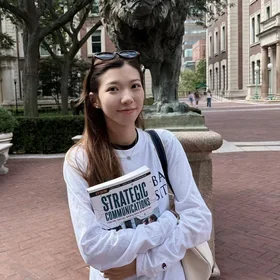By Sarah Oleng’
Executive M.S. in Strategic Communication student Ashley All recently found that courses she had taken in the program provided training that came in handy sooner rather than later.
When the U.S. Supreme Court overturned Roe v. Wade on June 24 and eliminated the constitutional right to abortion, states had the option to either retain the protection—or restrict it. In Kansas, lawmakers quickly put forward an amendment to voters which would open the door to legislation outlawing the procedure. A bipartisan coalition, Kansas for Constitutional Freedom, organized a campaign to block the amendment, and on August 2, Kansas voters rejected the amendment. Part of that successful effort was led by All, who serves as communications director for the group, which helped thwart the ballot measure.
In a recent interview, All discussed how her training at Columbia, including Strategic Communication courses such as The Compelling Communicator and The Authentic Leader, helped prepare her for the Kansas campaign.The classes, she said, “were essential in my role with Kansas for Constitutional Freedom.” All added, “I had to do over a hundred interviews between June 24 and Election Day on August 2. That included national and international live television interviews.”
Some edited excerpts from the interview:
Where do you work, and what was your team’s role in the Kansas abortion rights victory? How long did the campaign last?
I am the communications director for Kansas for Constitutional Freedom, which led the multimillion-dollar campaign to stop the constitutional amendment. The coalition has been working together for over a year. My job was to lead and coordinate media efforts and work with our team to plan media, message, and communication strategies based on our research. We developed a broad message for the campaign tailored to Kansas’s unique dynamics and our primary electorate. Our message centered on the need to protect women’s constitutional rights and freedom to make personal medical decisions about abortion for themselves and their families, free from government interference.
What does the pro-choice win mean to residents of Kansas?
Our resounding victory on August 2 sends a clear message to Kansas lawmakers that most Kansans support access to abortion and do not want to further restrict or ban abortion in our state. Stopping this amendment prevents the Kansas Legislature from passing extreme bans on this procedure that would risk women’s and girls’ lives. This is a victory for reproductive rights in Kansas—and across the country. More broadly, it’s a victory for women’s rights and equality at a time when constitutional rights are being stripped away at the federal level with the overturning of Roe v. Wade. Kansas was the first state in the nation to vote on reproductive rights following the fall of Roe. This was a historic victory.
How does your work relate to the Strategic Communication program?
A political or issue campaign is an excellent example of communication planning and execution. We followed the same process for background and market research we explored in Communication Research and Insights with Mark Truss. Our campaign team then used [what we learned] and insights about our target audiences to craft a compelling message that persuaded and motivated Kansas voters across the political spectrum to vote “no” on the constitutional amendment.
I was also very fortunate to spend a week in May 2022 learning from Andy Whitehouse and further refining my political communication skills. While I have eighteen years of experience in political communication, new perspectives and ideas from Whitehouse, classmates, and guest lecturers were invaluable. I better understood the importance of emotion and values in communicating and persuading voters.
Can you cite an example of how you used those skills in the Kansas campaign?
[We] used emotional storytelling about women, doctors, family members, and clergy struggling with the issue of abortion in our advertising campaign. These personal stories help voters understand the real-world implications of this amendment. [Thus] our campaign to protect Kansan women’s constitutional rights and freedom resonated with voters with differing beliefs on this issue—who came from different political backgrounds. We could find common ground and shared values.
Learn more about the Strategic Communication program.


